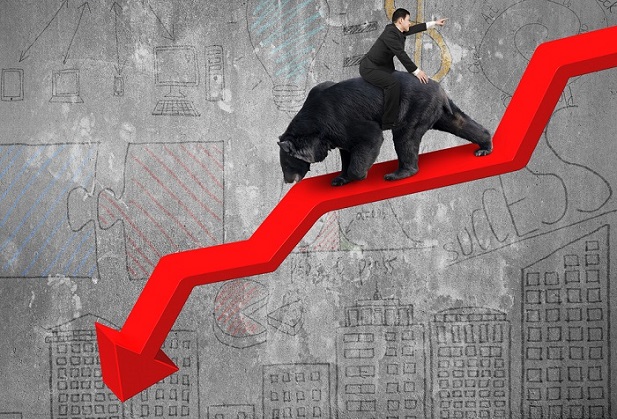 The length of the average bear market is about 14 months. Does that mean you should stay out of the market for a year once we hit a bear market? (Photo: Shutterstock)
The length of the average bear market is about 14 months. Does that mean you should stay out of the market for a year once we hit a bear market? (Photo: Shutterstock)
Do you know how much money you could make if you constantly sold at the market high and bought at the market low? Your returns would dwarf those of Warren Buffett.
Does this make Warren Buffett an investing fool? He doesn't worry about timing the market. And he's been investing long enough to know.
 Christopher Carosa, CTFA, is chief contributing editor for FiduciaryNews.com, a leading provider of essential news and information, blunt commentary and practical examples for ERISA/401(k) fiduciaries, individual trustees and professional fiduciaries.
Christopher Carosa, CTFA, is chief contributing editor for FiduciaryNews.com, a leading provider of essential news and information, blunt commentary and practical examples for ERISA/401(k) fiduciaries, individual trustees and professional fiduciaries."I don't know anybody that could time markets over the years," Buffett told CNBC viewers in 2017. "You'd be making a terrible mistake if you stay out of a game you think is going to be very good over time because you think you can pick a better time to enter."
Related: Advisor VIPs say: Keep it cool amid coronavirus market madness
The length of the average bear market is about 14 months. Does that mean you should stay out of the market for a year once we hit a bear market? If you did, you'd have missed out on some impressive gains in about half of all the bear markets since 1961.
Three of those bear markets lasted no more than six months, while the shortest (in 1990) lasted only three months.
"Ah, yes," you say. "The length of a bear market is one thing, but it is the length of the recovery that tells the real story."
You wouldn't be wrong in saying this. The average length to recover is 25 months—roughly two years.
But again, this is only the average. Actual recoveries have taken as long as 69 months (in the 1973 bear market) and as short as three months (in the 1980 bear market).
Here's the odd thing about both the 1973 and 1980 bear markets: They both lasted 21 months. Yet one took more than five years to recover from, while the other took only a quarter.
Likewise, the bear markets of 1987 (four months) and 1990 (three months) each had similar durations; yet it took 20 months to recover from the 1987 one, while the 1990 bear market was erased in only four months.
Such is the folly of market timing. With the market having gone up for so long, many people are experiencing a bear market for the very first time. Over the past 50 years or so, a bear market has occurred once every 6.5 years. It's been nearly twice as long since we had our last bear market.
It's likely, just as people may have forgotten what a bear market feels like, so, too, have they forgotten the dangers of marketing timing.
Market timing is the true mark of the investing fool. It requires two immaculately correct decisions: when to buy and when to sell. And you have to do it over and over again, for the minute the wheel comes up red when you've bet it all on black, you lose everything.
Indeed, in a 2014 CNBC interview, Warren Buffett said, "If they think they can dance in and out [of the market] and buy and sell stocks, they ought to head for Las Vegas."
Perhaps that's why they call him the Oracle of Omaha.
Read more:
© 2025 ALM Global, LLC, All Rights Reserved. Request academic re-use from www.copyright.com. All other uses, submit a request to [email protected]. For more information visit Asset & Logo Licensing.







